
I'm not sure what the Chinese calendar has to say about it but it seems pretty clear that we're all living in the year of the panther. Not only did Black Panther rule the domestic box office, bringing in $700 million ($1.3 billion globally) during a rare six-month run, the predominantly Black movie also dominated the pop culture landscape. It's been quite a year for movies in general. I accurately predicted way back in 2016 that Black Panther, Infinity War, Creed II and Venom would be big hits. What I didn't know was that Solo, The Predator, Pacific Rim: Uprising and Venom would suck so bad. So here we are in December and the good, the bad and ugly have come and gone. As usual, this list is based mostly on watchability and rewatchability. Your favorite well-crafted but boring movie probably didn't make the cut.
Honorable Mention: The Cloverfield Paradox
After the team of scientists aboard the station temporarily achieve stability after two years of unsuccessful attempts to operate the device, the particle accelerator overloads, resulting in a power surge throughout the Cloverfield. The group, including communications officer Ava Hamilton, slowly begins to realize that they have inadvertently opened a doorway between our world and an alternate dimension. One of the consequences is that Ava's husband, Michael, witnesses a gigantic monster roaming through the city in which he lives. Sound familiar?
The Cloverfield Paradox caught a lot of flack from critics because of the perception that it doesn't fit seamlessly into its franchise. When I watched it I didn't have any expectations -- and voila -- it worked just fine for me.
14. Monsters and Men


If Beale Street Could Talk, an adaptation of William Baldwin's 1974 novel, is a love story, set not on the schmaltzy plains of romantic comedy but in the suffocating confines of the real world inhabited by poor African-Americans.
The couple, Alonzo "Fonny" Hunt and Clementine "Tish" Rivers, find their already beseiged dreams take a nosedive when Fonny is arrested and charged with rape. Tish knows that Fonny's innocent, not only because he's morally incapable of commiting such an act, but also because he was with her and a friend at the time that the assault took place. A racist police officer reported that he'd witnessed Fonny running from the scene of the crime before he apprehended him at his home -- an impossibility given the distance between apartments and times involved. However, the victim, Victoria Rios, subsequently picked Fonny out of a line-up. To further complicate matters, Tish reveals that she's pregnant, which is very welcome, albeit frustrating news to Fonny, given that he's facing the prospect of only seeing his child during jail visits.
And when Tish's mother tracks Victoria to Puerto Rico where she's gone into hiding, it becomes clear that she never got a good look at her attacker.
The film maintains a dream-like quality throughout, which, because of the non-linear presentation of the story's events, often descends into nightmare. The euphoria is propelled, in part, by a sublime score. If Beale Street Could Talk is a period piece that offers an up-close-and-personal look at issues (namely, police corruption, institutional racism, a broken criminal justice system, sexual harassment and assault and false accusations) that plague us today.
Beale Street is remarkably similar to 2017's criminally underrated Crown Heights, based on the true story of Colin Warner, a New Yorker and African-American man who was wrongfully convicted of murder in 1980. Warner spent 20 years in prison before the efforts of his lifelong friend, Carl King, led to his release. Films like Crown Heights and Beale Street aren't similar due to Hollywood's age-old tendency towards exhaustive imitation but rather because the stories that they tell are, tragically, all too common.
12. Kin

11. I'd Prefer Your Problems Princess
After gangsters give him one week to come up with $10K, Ely happens to stumble upon a sleeping woman in the woods. When he answers her phone, his prayers are seemingly answered. The girl's father is on the other end of the line and assumes that his daughter, Tanya, has been kidnapped and offers to pay a $10K ransom. But because Ely runs out of gas -- and Tanya's in no hurry to go home -- the two end up spending more time together than Ely had anticipated. The series of adventures that follow over the course of the next few days are sure to be unforgettable to either of them.
This Belarusian comedy serves as a breath of fresh air in a cinematic landscape otherwise dominated by Hollywood features.
Director Antoine Fuqua sat down with infamous music mogul Marion "Suge" Knight in 2011 and 2012 for this illuminating series of interviews about the notorious tycoon's life and career.
9. Rampage
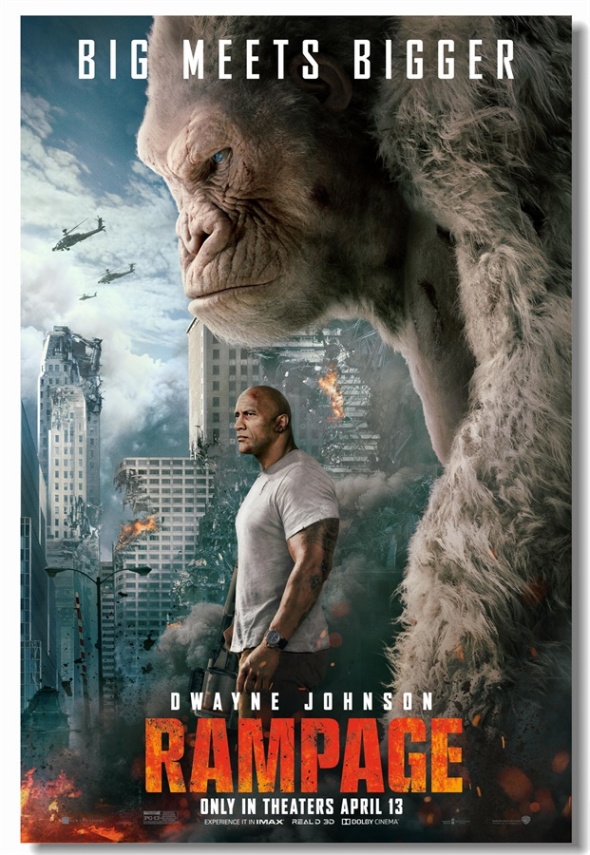
Yeah, yeah, I know. Rampage's premise sounds like it was cooked up at the last minute by an intern at the Syfy Channel. But believe it or not, it's a movie adaptation from successful source material -- which you probably shouldn't think about in the interest of keeping an open mind.
Rampage might sound idiotic on paper but the execution is friggin' awesome. This thing has horror, space travel, monsters, emergency skydiving and military action.
Lemme break it down:
After an experiment for genetics corporation Energyne, conducted on the international space station, goes left, canisters containing the company's dangerous new pathogen fall to Earth.
The three animals exposed to the pathogen mutate into hyper-aggressive, ginormous monsters and wreak havoc in their respective habitats.
Desperate to recover samples from the creatures, Energyne CEO Claire Wyden lures them to Chicago using a radio signal.
Primatologist and former Special Forces soldier Davis Okoye, who's taken care of one of the animals, an albino gorilla, since infancy; former Energyne geneticist, Dr. Kate Caldwell, whose work led to the pathogen's development; and federal agent Harvey Russell make their way to downtown Chicago in the hopes of applying the antidote before the military ends the rampage by leveling the city.
You won't find a more exciting cinematic ride in 2018 - with the exception of Infinity War. Next year's Gzilla: King of the Monsters and 2020's Gzilla vs. King Kong have their work cut out for them if they're gonna top, or even live up to, the Rock and George.
Rampage is the third collaboration between star The Rock and director Brad Peyton. They previously teamed up for Journey to Mystery Island and San Andreas. At this rate, their next collab just might bring home an Oscar (Too far?).
8. The Hate U Give
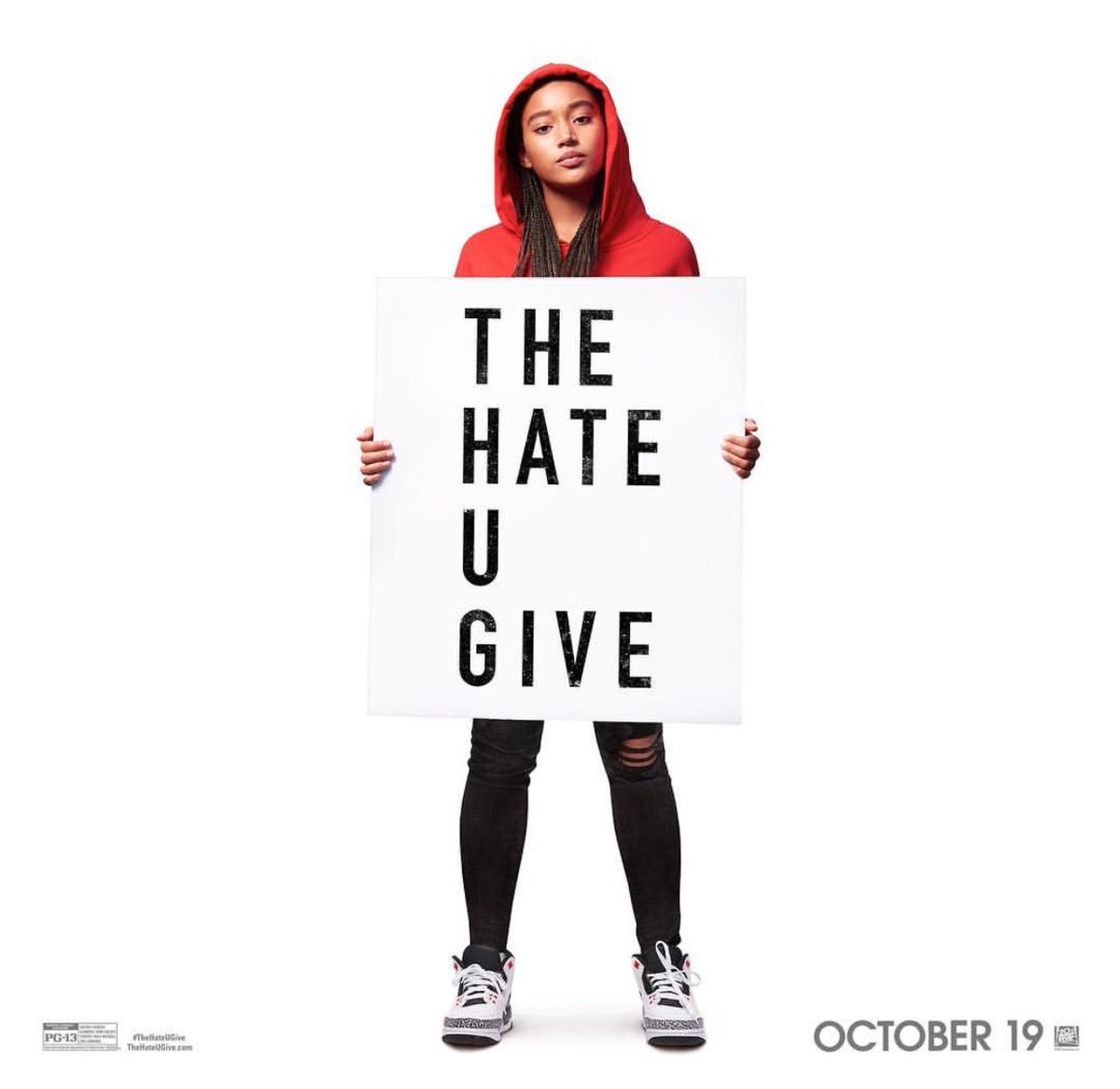
More than any other movie this year, The Hate U Give conveys the African-American Millenial experience. And like Blindspotting, released earlier this year, Hate also delves into multi-generational issues such as code-switching and murder-by-cop.
Both movies feature a fatal shooting of an unarmed African-American male by a white police officer. Unlike the relatively recent spate of police murders captured on video, there is only one eyewitness -- aside from the cop. The remainder of the films explore the effects that the shootings have on the witnesses.
In the case of Hate, the witness, Starr Carter, was a childhood friend of the victim, Khalil Harris. The two are pulled over for failure to signal a lane change on an empty street when Khalil drives Starr home from a house party. After Khalil is ordered out of the car, he's shot to death by the officer.
What follows is Starr's struggle to come to terms with the death of her friend, her efforts to achieve justice for Khalil while remaining anonymous, and her continued fight to be accepted by her predominantly African-American community without being solely defined by her ethnicity at her predominantly white high school. Despite Starr's wish to blend in and be a "normal" teenager, the seed of social activism planted in her by her father begins to grow.
The title is derived from the acronym (The Hate U Give Little Infants F#cks Everyone) that rapper and actor Tupac Shakur gave to the social movement and hip-hop group that he founded -- Thug Life.
7. Den of Thieves
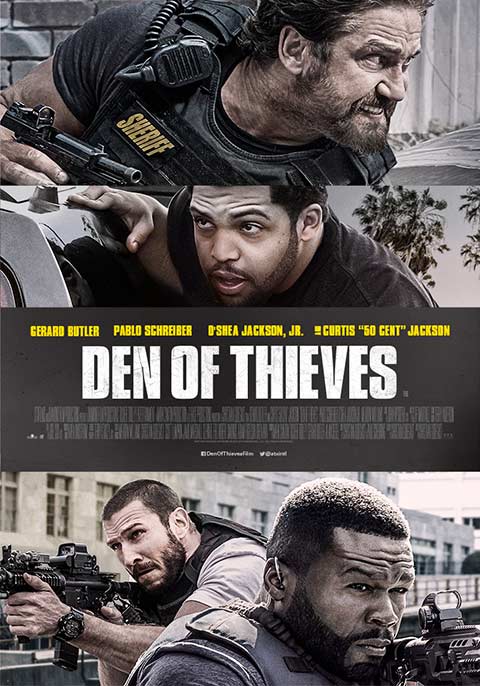

Den of Thieves is by no means a rip-off but it does bear a passing resemblance to Heat -- except without all of the subtle (and not so subtle) racism. And if you've gotten to the point where you lose all hope of a movie being worth a watch simply because 50 Cent's a member of the cast -- relax. This one's actually good. And he's good in it. If that weren't shocking enough (it actually shouldn't be for fans of "Power"), he portrays a loving husband and father.
50 and his band of brothers pay the bills by robbing armored trucks. Because they're always at least one step ahead of police, Nicholas "Big Nick" O'Brien, head of a Rampart-style LA Sheriff's unit, and his team of questionable lawmen wanna bring them down -- one way or another.
6. Hunter Killer
Hunter Killer is the best submarine movie since Crimson Tide. And as an added bonus, HK's action isn't limited to the claustrophobic confines of a sub. While the seamen aboard the USS Arkansas elude and engage the enemy under the waves, a four-man SEAL team embarks on a covert mission behind enemy lines on land.
The story revolves around the crew of Arkansas, led by Commander Joe Glass, which discovers that a missing sub, the USS Tampa Bay, has been sunk by its Russian counterpart. With the help of Rear Admiral John Fisk and NSA analyst Jayne Norquist, the sailors discover a conspiracy that could provoke a nuclear war.
The title is derived from the Arkansas' designation. Hunter-killers are specifically designed to attack and disable other submarines. While the general premise bears a broad resemblance to Tide, Hunter Killer is a wholly different movie. The alternating suspense and action hardly ever gives you a moment to breathe. This is one to watch and the best contemporary military movie of the year.
5. Infinity War
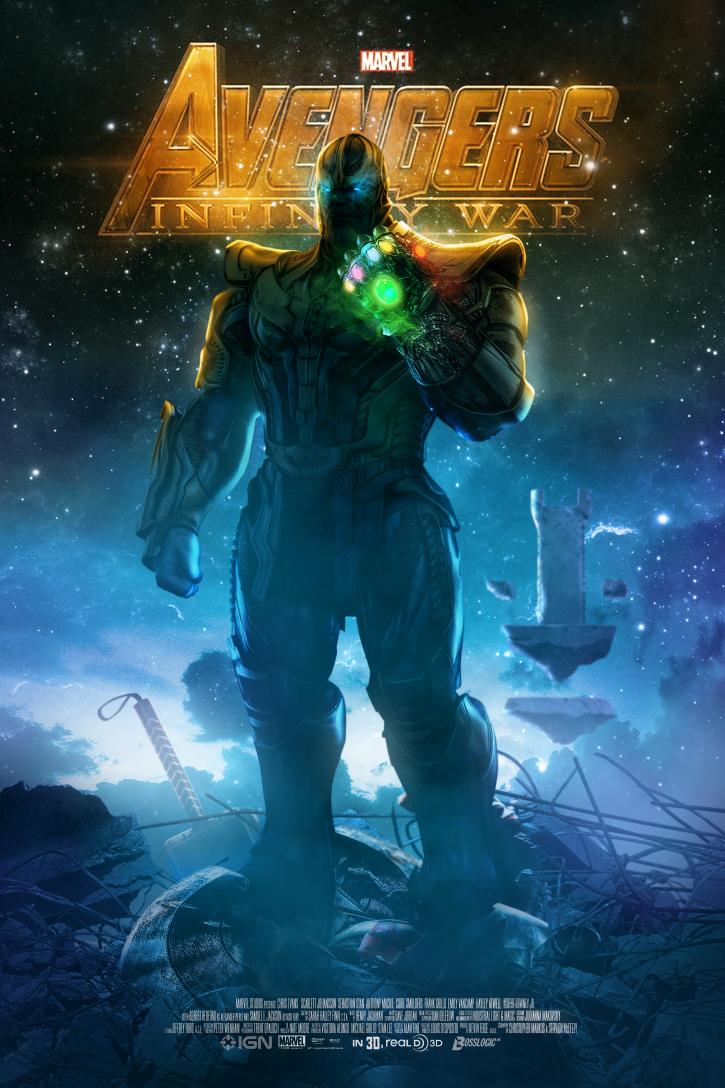
I've seen Infinity War three times already and I like it even more than I did the first time I watched it. I agree with the filmmakers that this is mainly Thanos' story. There was some question as to whether a live-action Thanos would or even could do the original comics version justice. And the fact is that the iteration of the character that we see in Infinity surpasses all the ones that came before. But there are standouts on the other side of the war as well.
The pressure was on for the MCU's 18th feature to deliver on 10 years worth of build-up. And IW certainly met the challenge. The Guardians of the Galaxy have never been better -- not even in their own movies. Quill and Rocket outshone the vast majority of the other characters onscreen. The two of them really did have the best lines. Infinity also provides the greatest showcase for Thor. It's a huge step up from the Thor trilogy, in particular. He really does emerge as the hero, albeit an unsuccessful one.
4. Mile 22
When I found out that Ronda Rousey was one of Mile 22's co-stars, my expectations for it sank like a rock. After seeing Furious 7 and The Expendables 3, I lost all hope of any movie in which she appeared being any more than mildly entertaining, much less having any substance. But this story about a black-ops team in way over its head is just as entertaining as the latest IMF mission.
The story centers on CIA agent James Silva, leader of Overwatch, a covert black ops unit authorized to kill by the U.S. government, and his search for nine pounds of cesium-139 -- an isotype used in creating dirty bombs. Diagnosed as highly intelligent but hyperactive and prone to violence as a child, Silva was recruited to the agency after losing his mother and brothers (a set of twins) in a fatal car accident at 11-years-old and later serving in the USMC Force Recon -- the Marine Special Forces.
After the team comes up empty, Overwatch member Alice Kerr's source, who originally tipped the CIA off about the cesium, low-level Indocarr police officer Li Noor, turns himself in at the U.S. embassy offering to disclose the precise location of the highly radioactive material in exchange for safe passage out of the country. However, after Noor kills a team of assassins disguised as medical staff, it becomes clear that he's a much more valuable asset than previously thought and each member of Silva's team resigns so that their mission to liberate Noor and retrieve the cesium at all cost can't be tied to the government.
The convoy escorting Noor to a plane to the U.S. is attacked en route to the airfield and several Overwatch members are killed.
Silva and Kerr are the only team members who survive to escort Li Noor to the plane. While all of this is taking place, a team of Russian operatives is tracking Overwatch and monitoring their communications. And once his flight takes off, with a battered and bruised Alice onboard, the low-level cop is revealed to be a triple agent who's been working with them all along.
Mile 22 is the first great spy thriller in four years and makes at least half of the Mission: Impossible series look even more cartoonish by comparison. Overwatch inhabits a more realistic world in which intelligence operatives are aided by system hacks, satellite surveillance and drone strikes rather than rubber masks that we're supposed to believe are indistinguishable from human faces. It's also a world in which disguised enemy agents murder their targets without hesitating as opposed to exposing themselves in order to engage in "witty" banter.

With only three days left on his parole for assault, Collin Hoskins witnesses an unarmed Black man being fatally shot in the back by a white police officer. With freedom looming and his release from a halfway house right around the corner, Collin tries to put the murder out of his mind so that he can fully assimilate back into society.
His friendship with his hot-headed right-hand man, Miles, whose criminal behavior threatens to get him sent back to prison; his complicated relationship with his ex-girlfriend and current co-worker, Val; the gentrification of his Oakland, California neighborhood; and his money problems give him plenty to think about, but he still can't get the shooting off his mind.
The story climaxes when Collin and Miles, who both work at a moving company, arrive at the address of a job and Collin discovers that it's the home of the cop that he saw kill a man.
Friendship, identity, racial politics, police
2. Creed II
It's a shame that Creed and Creed II couldn't be released as one four-hour movie because the sequel is a perfect continuation of its predecessor. It also brings the events of Rocky IV full-circle but without the corny elements of that film. In particular, the towel is thrown into the ring in order to save a Drago from being killed by a Creed, where 33 years ago a Creed was killed by a Drago because the towel wasn't thrown into the ring.
Like Creed and Rocky Balboa, Creed II is very much about fathers and sons -- but to an even greater extent. Now that the loose ends concerning the Dragos have been tied; the Balboas' issues have been resolved; and the Creeds seem to have found both redemption and peace, one question remains: Will Apollo's other two kids ever be addressed?
Like Creed and Rocky Balboa, Creed II is very much about fathers and sons -- but to an even greater extent. Now that the loose ends concerning the Dragos have been tied; the Balboas' issues have been resolved; and the Creeds seem to have found both redemption and peace, one question remains: Will Apollo's other two kids ever be addressed?
1. Black Panther
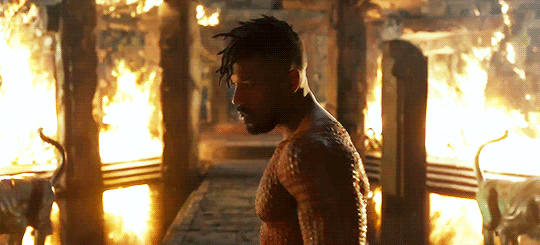
Infinity War is the biggest money-maker of the year. But unlike Infinity War, Black Panther wasn't just a movie -- it was an event. And a cultural touchstone. And a watershed moment for big-budget filmmaking.
Black Panther, even more than The Dark Knight, elevates the comic book movie to a genre that's capable of actually saying something. The film's complex social commentary far exceeds any other installment in the wildly successful MCU while still managing to become the third highest-grossing movie of all time in North America and rack up $1.34 billion at the global box office.
T'Challa, who protects his people under the guise of the legendary Black Panther, finally returns home to the seemingly third-world African nation Wakanda as the heir apparent following the death of his father, King T'Chaka, in Civil War.
Meanwhile, T'Challa's American-born cousin, Erik Stevens, is on a collision course with the new monarch, steadily inching his way to his ancestral home with single-minded determination. After becoming a Navy SEAL and graduating from MIT, Stevens honed his skills as a warrior in Afghanistan and other hot spots around the globe, picking up the nickname "Killmonger" (a reference to his considerable body count) along the way. His military career also includes black-ops missions in which he helped to destabilize governments.
With assistance from black market arms dealer Ulysses Klaue (first seen in The Age of Ultron) and Tilda Johnson, Stevens uses his skills to steal (or liberate) two Wakanda artifacts from a London museum. One of the items, a weapon, is revealed to be made of vibranium - the same Wakandan material that comprises Black Panther's suit and Captain America's shield.
After murdering both of his accomplices, Stevens' makes his way to Wakanda, where he reveals his native name (N'Jadaka) and the fact that he's of royal blood (as the son of King T'Chaka's brother) and thereby eligible to challenge T'Challa's claim to the throne. Following his defeat of T'Chaka in ritual combat, N'Jadaka does indeed assume the Wakandan throne and announces his intention to distribute the country's advanced technology and weaponry (based mainly on vibranium) to the African diaspora across the globe so that the world's Black population can rise up against white regimes. T'Challa, beaten to within an inch of his life and presumed dead, and his loyal supporters initiate a Wakandan civil war in order to stop the new king from inciting an international race war.
The central conflict in Black Panther stems from the ideological differences between T'Chaka and Stevens. The former is a staunch isolationist who continues Wakanda's previous rulers' policy of disguising the advanced nation as a third-world country, in part so as not to share their priceless reserves of vibranium that not only powers Wakandan technology but also bestows enhanced abilities upon the Black Panther. Stevens, on the other hand, not only wants to reveal Wakanda's true nature, his lifelong dream has been to expand the kingdom into an empire that dominates the rest of the world as insurance against the subjugation of Black people. T'Challa also acts as a stand-in for Black Africans while Stevens represents African-Americans, whom he views as being abandoned, historically, by the former.
The movie also comments on such weighty topics as cultural appropriation, disproportionate incarceration rates, colonialism racial oppression and slavery.
Fittingly for a story about Native Africans, the cast is almost entirely comprised of Black actors.
Black Panther marks the third collaboration (all critical and commercial smashes) between writer/director Ryan Coogler and co-star Michael B. Jordan, placing them among the ranks of legendary cinematic teams such as Martin Scorcese/Robert DeNiro, Spike Lee/Denzel Washington and Tim Burton/Johnny Depp. And with his scene-stealing turn in BP, Jordan proves that he's just as adept at portraying villains as he is heroes.
Originally Posted 12/11/18
Related:
The 14 Best Movies of 2014



I haven't seen a couple of the movies on this list, but now I have to. Rampage... yep, dismissed it when I heard the name and double dismissed it when I saw the ape with The Rock. The same with Blindspotting. But you've sparked my interest. Excellent post!
ReplyDelete